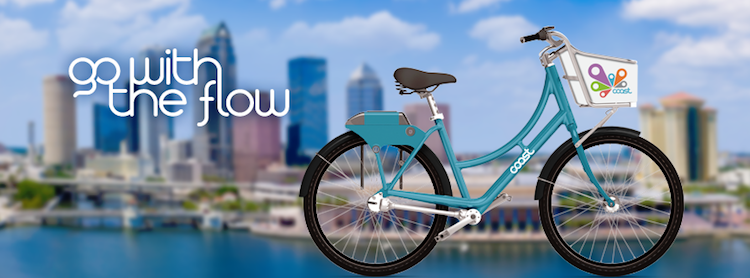The modern workplace is changing. New and existing employees are looking for a mixture of traditional and modern work benefits.
Maybe you don’t have a ping-pong table or forest room like hip startup companies, but that doesn’t mean you can’t take measures to make the workplace more enjoyable and (almost) stress-free.
Going above and beyond in treating your employees well in the workplace is a great way to encourage individuals to bring their best selves to work. When employees are happy and feel their needs are fulfilled, they tend to be more productive and work harder towards their goals. Organizations see less turnover and a higher commitment to the team overall.
With increasing conversations about student affairs burnout, we’re reflecting and providing professionals with ideas to consider with regards to wellness in the student affairs workplace.
Addressing Mental Health
We are all unique in what makes us feel a higher or lower sense of belonging to our respective workplaces.
As a supervisor or someone in a leadership role, it’s important to open up the floor and start a conversation about the mental health of your department. When leaders reach out to employees regarding mental health, you’re showing the employee or staff member that you care and want to see them succeed in their role and in life.
The Center for Prevention and Health Services estimates that mental illness (and substance abuse) cost employers roughly $79 to $105 billion in indirect costs. Things like increased healthcare costs, absenteeism, and decreased productivity are just a few of the ways institutions and organizations pay for poor mental health.
Student affairs professionals often feel like their dealing with a lot: for example, helping students process the events that are occurring in the world around us. Who is truly helping and supporting student affairs pro’s after these exhausting conversations? On top of current events, many professionals seem to work on-call hours and long work days responding to situations in the realm of sexual violence, hate crimes, and among many others which are always unpredictable.
In past student affairs roles, I often found myself burnt out and working long hours to accommodate both staff and students. As a new professional, I wanted to prove I was worth it, so I often justified working long hours was okay. Looking back, I wish I told myself and other professionals that it’s okay to ask for help and you don’t have to do everything alone.
In dealing with my own mental and emotional health issues, I’ve shared my concern of affordability with appointments. However, I’ve found that many professionals offer sliding scales based on pay or were open to negotiating much lower prices without insurance. I was able to call my health insurance company and ask for a list of professionals within a 5-mile radius of my address that were free under my insurance plan offered by the institution. It’s important that staff members realize these options are available so they don’t feel continually stuck and isolated.
Offering Transit Options
Think about reimbursing employees for costs associated with transportation to and from work. Environmentally friendly transit options often appeal to those employees who prioritize sustainability and responsibility of the world around them, want to save money, and want to get a good workout. All of these reasons help with recruitment of open positions and employee retention as additional workplace perks.
Providing reimbursement for taking the train, bus, or other public transportation option may save the headache for institutions who have limited parking on campus.
The biggest selling piece for employees who are truly interested in walking or biking to work: it makes us happier people overall.
In a study at McGill University, researchers found that among 3,377 students, staff, and faculty, those who walked or biked to work or class were most satisfied with their commute. Sometimes even if it made their commute take longer.
There is a long list of other reasons of why you should start biking to work and one of them includes receiving a reimbursement from Uncle Sam for up to $20 a month (for employees who bike at least three days out of the week to the office). Bike repairs are often, almost always cheaper than car repairs. Knowing that you don’t have to breathe in as many harmful fumes from sitting in traffic is another great feeling by taking a different set of wheels to work.
If employees don’t want to worry about upkeep or the costs of owning a bike, they may be able to find a bike sharing program in their area, like the one below.

The Presence team is excited about the new initiative in St. Petersburg, Florida where Coast Bike Share is setting up bike share stations around the city to encourage alternative transportation to cars.
Role Modeling Self-Care
Much of the advice we give during the summertime to recharge, relax, and rejuvenate extends into the academic year. We are responsible for our own self-care and need to uplift colleagues around us who may be looking for some inspiration.
What is self-care?
More than taking a hot bath and lighting some candles.
Self-care can be activities that restore energy, enhance overall health, and reduce stress. Easier said than done.
According to The Hunter Institute of Mental Health, we often give ourselves reasons or excuses not to practice self-care. Some of the mind-sets we often find ourselves in may include:
The ‘Care-r’ Mindset: “It is more important to help others, I’ll be OK.”
The Superhero Mindset: “I should be able to cope.”
The Time or Competing Priorities Mindset: “I’m too busy, or I need to do [x] first.”
The Perceived Value Mindset: “I don’t believe I deserve it/I’m worth it or self-care has not benefit/waste of time.”
The Not-Part-of-Routine Mindset: “I’m really motivated but… it’s hard to change habits and/or start doing things I’ve never done before.”
The Workplace Culture or Lack of Role Model Mindset: “No one I know is practicing self-care or lack of support/encouragement from others in any attempt to make changes.”
Through activities like re-framing and goal-setting many professionals can overcome the mindsets listed above. An old dog can be taught new tricks.
Self-care must be prioritized in the workplace and this is where student affairs leaders play a large role in establishing a ‘self-care first’ culture. The culture of a department or workplace (the way things are done) often stems from the top. With great leadership comes great responsibility- and in student affairs that means having candid conversations with direct reports and employees.
Self-care is truly a balancing act between mental health, physical health, and social health. The field of higher education tends to talk about self-care more and more because it’s a complex topic and intersects with the identities we decide to bring to our professional space.
Setting boundaries in and outside of work is a great example of self-care. The ability to set aside alone time for passions outside of work, or just for alone time, is a beautiful thing. Continually compromising the time side we set aside for ourselves can be detrimental in all areas of our life.
What are your thoughts on wellness initiatives in students affairs?
Have you implemented new health or wellness programs in your workplace?
What’s one goal you’d like to set for your team surrounding self-care and improvement?
I understand that some people reading this won’t be sold on supporting employees health and wellness because they consider it too expensive. Consider the amount of sick days and time employees are and could potentially spend out-of-office, (never mind the higher risk for employee turnover). Implementing all of these initiatives aren’t a one time fix: starting the conversation and putting your employees’ wellness first is a start.
Overall, how we approach employee health in the workplace must change if we truly want whats best for our student affairs teams. Putting health and wellness first is one of the greatest acts of self care and allows us to make time to help others, like the students at who attend our institutions.
Share your thoughts with us @themoderncampus. Thanks for reading!
Check out more information on self-care and happiness in the workplace in Happify’s infographic below.






